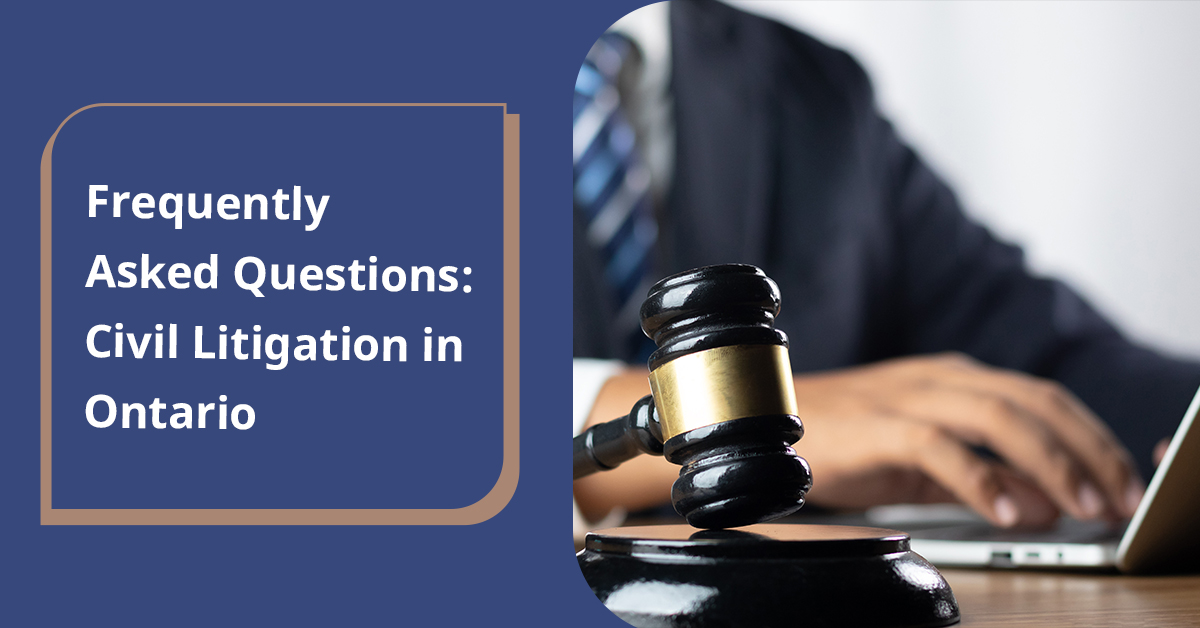A) How to File a Civil Lawsuit in Ontario?
Lawsuits are now filed online through a portal that the court has. Before it is filed, I will gather all the facts, review any documents that may be relevant, and research the law. I will speak with you and discuss what damages you can claim, and send you a draft of the Statement of Claim to review and get your feedback before it is filed in the court portal.
The same goes for a Statement of Defence. They are filed online through the same court portal. Before it is filed, I will gather all the facts, review any documents that may be relevant, and research the law. I will speak with you and discuss what defences you may have, and send you a draft of the Statement of Defence (and Counterclaim if applicable) to review and get your feedback before it is filed in the court portal.
B) How Much Does Civil Litigation Cost?
This is always a difficult question to answer. We charge by the hour, and there are some out of pocket disbursements in a lawsuit. There are numerous stages in a typical lawsuit. We explain what stage is coming up, and advise how much we expect the legal fees will be. You do not pay for an entire lawsuit at the beginning. It is paid for in stages as work gets completed. The most expensive part is the trial. That is why 95% of cases settle before trial.
If we are doing the case on contingency, then I take a percentage of the settlement or Judgment instead of being paid by the hour throughout the case.
C) What Evidence is Needed in a Civil Case?
The Rules of Civil Procedure require that you must provide all documents in your care and control that are relevant to the issues raised in the lawsuit, whether those documents help or hurt your case. This could include contracts, documents, emails, letters, memos, text messages, financial records, bank accounts, etc.
The Plaintiff has the onus to prove their case on a balance of probabilities. That could require both documentary proof to support your claim and oral testimony from the Plaintiff and any witnesses that is called to corroborate a part of the Plaintiff’s case. Lawyers prepare all of the documentary evidence in exhibit books to make it organized for the trial Judge.
D) What Happens if You Lose a Civil Lawsuit?
If a case goes all the way to trial (only 5% go that far, then the loser will be required to pay a portion of the winning party’s legal fees. It is usually around 60% of their actual legal fees incurred on the case, but a Judge has discretion to award more or less. In addition, you will be required to pay all out of pocket disbursements that the winning party incurred during the litigation, such as court filing fees, expert reports, medical records, photocopying costs, etc. On top of all that, you will have to pay “prejudgment interest” on the amount of the Judgment. So you really don’t want to go to trial unless you are confident about the strength of your case. If you are not, then you should try to settle before trial.
